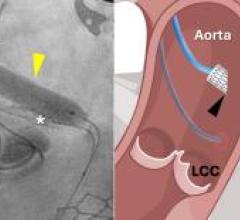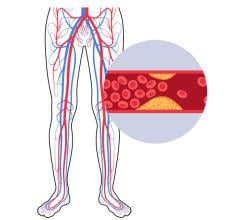
May 25, 2017 — A new study from Emory University observed a near-20 percent reduction in perioperative complications, a 1.2-day reduction in ICU stay and a $3,654 reduction in per-patient hospitalization costs for coronary artery bypass graft (CABG) surgery. The reported outcomes, which included no severe hypoglycemia less than 40 mg/dL, were derived from an intensive glycemic control protocol supported by Glytec’s Glucommander for personalized insulin dosing.
The study, published in the April 2017 issue of Journal of Diabetes and Its Complications, is a post-hoc cost analysis of the GLUCO-CABG trial published in the October 2015 issue of Diabetes Care. The GLUCO-CABG trial was a randomized open-label clinical study of CABG surgery patients with and without diabetes who experienced perioperative hyperglycemia (defined as a blood glucose greater than 140 mg/dL). A total of 302 patients between ages 18 and 80 were randomized to an intensive glycemic control group (target blood glucose of 100 to 140 mg/dL) or a conservative glycemic control group (target blood glucose of 141 to 180 mg/dL). Both groups were treated using Glucommander to guide intravenous insulin dosing while in the ICU.
“We observed a significant reduction in cost between those treated to the intensive target and those treated to the conservative target,” explains a study author, Guillermo Umpierrez, M.D., professor of medicine and director of clinical research for the Diabetes and Metabolism Center at Emory University. “This reduction, which was more than $3,600 per patient, is the result of multiple factors. Not only did we reduce complications and length of stay, we reduced resource utilization across pharmacy, radiology, laboratory, consultations and ICU.”
Study data indicate the mean blood glucose was 132.5 mg/dL among patients in the intensive glycemic control group and 154.4 mg/dL among patients in the conservative glycemic control group, which Umpierrez believes is the primary factor behind the reduction in perioperative complications (of near-20 percent). Umpierrez also believes the reduction in complications contributed to the reduction in both ICU stay (of 1.2 days) and hospitalization costs.
“A measured advance in the treatment of inpatient hyperglycemia, especially in the intensive care area, has been the development of computer-guided algorithms for insulin dosing; also, alerts to help the nurses stay on top of glycemic indicators and blood glucose checks,” Umpierrez said. “We use the Glytec system with Glucommander to help facilitate hyperglycemic management, and adjust insulin dosing according to the many changes that happen in the ICU, in a safe way.”
Glucommander is a U.S. Food and Drug Administration (FDA)-cleared decision support solution for intravenous and subcutaneous insulin dosing in the treatment of patients both with and without diabetes. Healthcare providers are able to access Glucommander through Glytec’s eGlycemic Management System (eGMS), a software-as-a-service platform.
The most important consideration in the improvement of glycemic control, Umpierrez said, is safety: “Hypoglycemia has been shown to be associated with higher morbidity, mortality and hospitalization costs. Thus, physicians frequently avoid intensive glycemic control due to fear of hypoglycemia. To break treatment inertia, we need safe tools to improve glycemic control with minimal risk of hypoglycemia. I think the GLUCO-CABG trial and other studies recently published have clearly indicated that improving glycemic control with minimal risk of hypoglycemia results in improved outcomes.”
Another key observation from the post-hoc cost analysis of the GLUCO-CABG trial was the difference in economic outcomes when comparing patients with perioperative complications to patients without perioperative complications. “We found that patients with perioperative complications had a longer overall length of stay, by four days (10.7 days vs. 6.7 days; p=0.001), higher total hospitalization costs ($48,299 vs. $32,675; p=0.001) and more resource utilization units (2,745 vs. 1,710; p=0.001),” explained lead author Saumeth Cardona, M.D., clinical research coordinator IV in the Division of Endocrinology, Metabolism and Lipids at Emory University.
For more information: www.journals.elsevier.com


 January 15, 2026
January 15, 2026 









